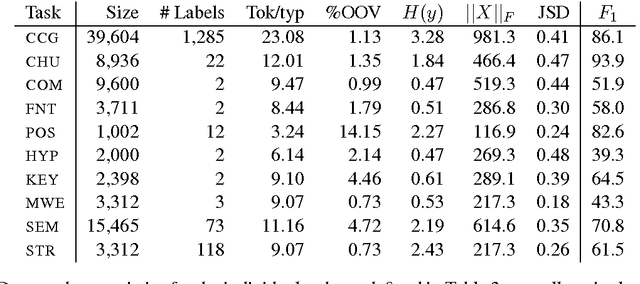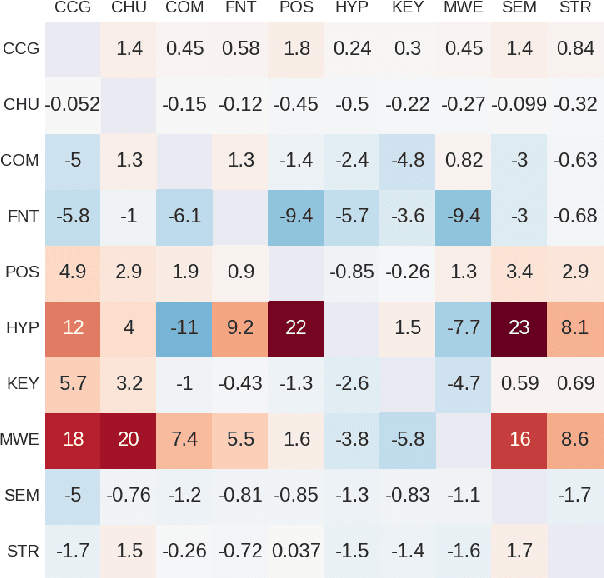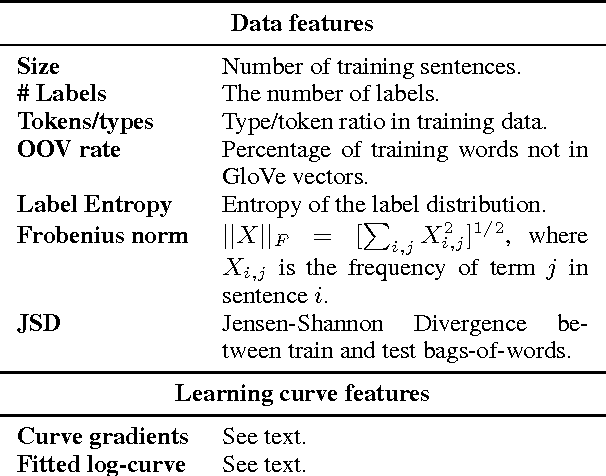Identifying beneficial task relations for multi-task learning in deep neural networks
Paper and Code
Feb 27, 2017



Multi-task learning (MTL) in deep neural networks for NLP has recently received increasing interest due to some compelling benefits, including its potential to efficiently regularize models and to reduce the need for labeled data. While it has brought significant improvements in a number of NLP tasks, mixed results have been reported, and little is known about the conditions under which MTL leads to gains in NLP. This paper sheds light on the specific task relations that can lead to gains from MTL models over single-task setups.
* Accepted for publication at EACL 2017
 Add to Chrome
Add to Chrome Add to Firefox
Add to Firefox Add to Edge
Add to Edge